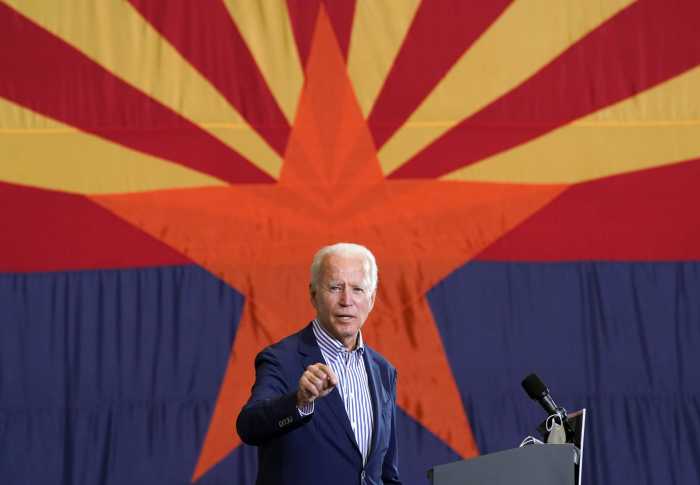BY MATT SPETALNICK AND MICHAEL MARTINA, Reuters
Joe Biden on Saturday reached the two-week mark since becoming president-elect, with President Donald Trump stinging from back-to-back setbacks in his desperate, unprecedented bid to undo his election defeat.
Biden, a Democrat, is preparing to take office on Jan. 20, but Trump, a Republican, has refused to concede and is seeking to invalidate or overturn the results through lawsuits and recounts in a number of states, claiming – without proof – widespread voter fraud.
That effort, which critics call an unparalleled push by a sitting president to subvert the will of voters, has met with little success. Trump’s campaign has suffered a string of legal defeats and appears to have failed to convince key fellow Republicans in states that he lost, such as Michigan, to buy into his unfounded conspiracy theories.
Trump’s bid to cling to power appeared ever more tenuous on Friday after Georgia Secretary of State Brad Raffensperger announced a manual recount and audit of all ballots cast in the southern state had confirmed Biden as the winner there.
A pair of Michigan Republican leaders delivered another blow when they declared on Friday night after a White House meeting with Trump: “We have not yet been made aware of any information that would change the outcome of the election in Michigan.”
Trump, in his first public comments in days about the election outcome, again falsely asserted “I won” during a White House event on lowering drug prices earlier on Friday.
After a series of court defeats, the Trump team is resting its hopes on getting Republican-controlled legislatures in battleground states won by Biden to set aside the results and declare Trump the winner, according to three people familiar with the plan.
Editor’s note: Presidential electors are chosen by the voters when they cast a ballot in a presidential election. The electors of the candidate who wins the state’s popular vote then cast the formal votes for president and vice president in the Electoral College. In the history of this country, no state legislature has ever over-ridden the popular vote to install the electors of one party’s preferred choice — as that would undermine the voters’ will in their respective state and this democratic republic.
Pressure to start formal transition
Biden, who became president-elect on Nov. 7 after his win in Pennsylvania prompted major television networks to call the election, was due to spend Saturday meeting with Vice President-elect Kamala Harris and transition advisers.
Trump will participate virtually this weekend in the last summit of the 20 biggest world economies (G20) of his term.
Trump’s nationalistic “America First” approach has often created waves at multilateral summits like the G20, and many U.S. allies have quietly welcomed the coming change of leadership in Washington.
Pressure for Trump to start the formal transition process has mounted, with a few more Republicans voicing doubts over his unsubstantiated claims of fraudulent voting.
There is a “right way and a wrong way” for Trump to contest what he sees as election irregularities, Susan Collins, the Maine Senator, said in a statement. “The right way is to compile the evidence and mount legal challenges in our courts. The wrong way is to attempt to pressure state election officials.”
The General Services Administration, run by Trump appointee Emily Murphy, still has not recognized Biden’s victory, preventing his team from gaining access to government office space and funding normally provided to an incoming administration.
Critics say Trump’s refusal to concede has serious implications for national security and the fight against the coronavirus, which has killed more than 250,000 Americans.
Shut off from government funds, Biden’s team on Friday ramped up their fundraising for the transition. Having taken in more than an initial $7 million target largely from wealthy donors, they turned to their campaign’s vast mailing list of small donors, asking – according to a fundraising note – for contributions as small as $25.
Even as the Biden team remains unable to access resources and government experts to help assume management of the $4 trillion U.S. government on Inauguration Day, Trump officials have been making unexpected changes to programs, policies and agencies that could affect the incoming administration.
The Treasury Department’s surprise demand that the Federal Reserve return hundreds of billions of dollars in credit designed to back loans to businesses drew a sharp response from Biden’s team on Friday, who called it “deeply irresponsible,” given the country’s accelerating COVID cases and new lockdowns.







































